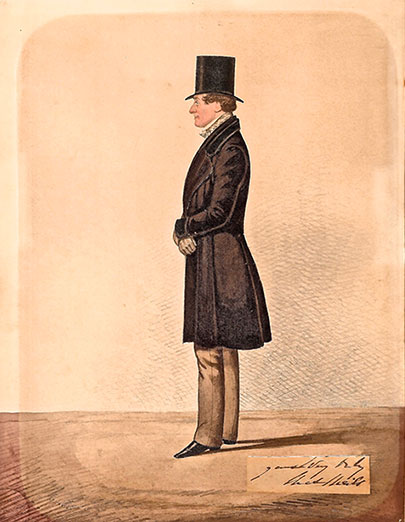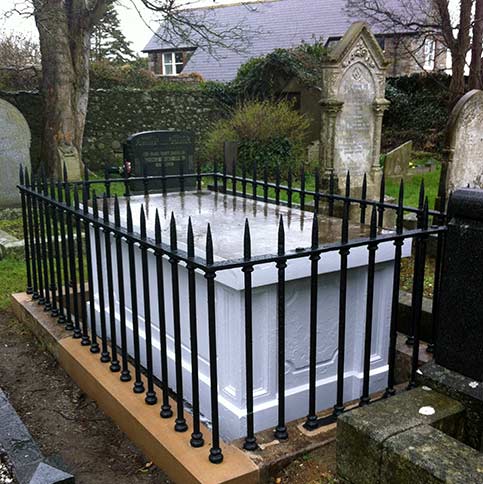Charles Sheils was a remarkable individual who in many ways was of his time and yet ahead of his time. He was born in the County Down village of Killough, on November 8th, 1782.
The making of a merchant
Charles commenced work as an apprentice merchant and could be found in Dublin, London and even as far away as America.
On his return to Ireland he married a Miss Catherine Newton from Co. Tyrone and went to live and work in Liverpool as a general shipping and commission merchant. In 1819 he entered a trans-Atlantic partnership and his mercantile firm became very successful with premises in both Liverpool and New York. By 1829 they became one of the five largest mercantile firms in Liverpool and as a result amassed a large fortune.
Remaining in Liverpool until his retirement in 1851, he returned to Ireland and went to live in Killiney, Co. Dublin, having apparently amassed a very large fortune. Charles was a wise and shrewd investor with shares in Irish, English and American railway, hotel and bank stocks. These and his business fortune allowed him to be a very generous benefactor.
Mr and Mrs Sheils’ had no children and Charles died on 21st December, 1861, aged 79 and was buried in the family plot at St Ann’s Church, Killough.

Touched by Tragedy
A gentleman who acquired first-hand knowledge of the huge scale of individual human suffering and the social dislocation which the famine brought to Ireland and had been profoundly affected by the hardship and poverty endured by his fellow countrymen.
Charles had a very distinct social conscience and despite his wealth and status, he commentated openly on the evils of slavery and the deplorable condition of the Irish tenant farmer. This moved him profoundly and set in motion the generosity which led to the establishment of the charity, which has conferred, and is conferring, as far as it is able, as great benefits as probably any similar institution in the United Kingdom. The aims in establishing the charity were specifically to help people who had formerly enjoyed a standard of living and way of life which would have made the workhouse particularly difficult to bear.
Sadly Charles did not see his dream realised.
To carry out his charitable intentions he planned an elaborate scheme, embodied in his will. An Act of Parliament had to be created to establish the Charity which led to the building of five sets of Almshouses between 1867 and 1872, firstly at Killough, then successively at Carrickfergus, Dungannon, Armagh and Stillorgan.
Charles makes a will
It is worth getting a flavour of his intention by quoting from his Will:
“Wishing to rescue a few of the thousands of destitute persons scattered over almost all the towns and villages in Ireland, I propose building almshouses as far as the balance of my property will extend, first, to relieve as many as I can of those who from their former lives are entitled to a better provision in old age than the workhouse, and secondly, with the hope (should my scheme work as well as I expect it will do) that this little move may be followed by others, who even at this moment are anxious to assist the poor people, but find a difficulty in knowing how it can be accomplished.”A remarkable stipulation
The really remarkable aspect of his project is his stipulation that:
“the inmates are, from time to time as vacancies occur, to be chosen without reference to religious creed from among the most deserving of such applicants”.
He then specified that the local managers for the Killough houses should include the local clergy of the Anglican, Roman Catholic and Presbyterian churches, and that similar arrangements should exist elsewhere.
The next houses were built in Stillorgan, south of Dublin, Carrickfergus, Dungannon and Armagh.
There are today 126 houses.
A sense of place was important to Charles as he stated in 1843: “I am an Irishman, and though I have lived on this side of the Channel the greater part of my life, I am more Irish this day than the first moment I set foot in England.”

Charles was ahead of his time and his vision was for an ecumenical charity which, despite the political and religious upheavals of the nineteenth and twentieth century in Ireland, continues in the form Charles set down in his bequest.
As a commentator posthumously observed of Charles’ charitable endeavours in 1869: “in his prosperity he recollected those who adversity marked out for its own”.

